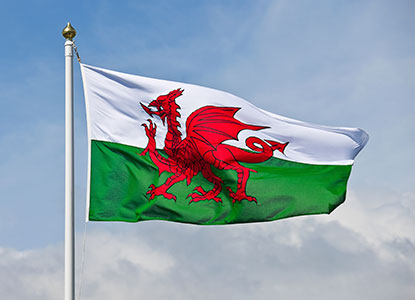
Image © iStock
Lockdown now seems like a long time ago but one of the abiding moments was a determination by the devolved governments to stick to their own rules on restrictions – and Wales was no exception.
Officials and police chiefs are now used to being told that some of the big policy areas are now devolved matters so Westminster’s reach is restricted.
When the Home Office set out plans to overhaul police officer welfare, it was pushed back with a warning that health was not a policy area it could control. policing is one issue where there are subtle differences, such as the greater use of community support officers (PCSOs).
A crux issue was that the offer wasn’t funded and the Welsh government wasn’t prepared to divert existing funding.
So what else is different and could the areas where Wales leads be copied by a new government?
The answer is plenty and yes – especially if Labour wins.
Back to Bevan
It all goes back to one policy issue that has defined the nation, the National Health Service which was created by Welsh hero Nye Bevan.
Since 1969, objectives have been decided and delivered separately by the Welsh office not the Department of Health.
It’s this issue that matters above any other for voters, not least because the data on outcomes isn’t good.
According to the Bevan Foundation think-tank, one in five people is waiting for NHS treatment. Research by the Health Foundation concluded rising inequalities could see more people of working age living with major illnesses by 2040.
And there are other issues that policymakers think is different to Westminster: community wellbeing, net zero and tackling inequalities.
The focus at local level has been on preventative work based on known outcomes – a significant number of the older population is facing issues linked to occupations in heavy industry.
A common theme is joining up work to policy responses rather than working in individual silos.
One area of innovation is a plan to bring empty homes back into use as a way of reducing pressure on social housing.
Before the election was announced, plans were announced by the Welsh Government to create new guidance for local authorities.
“Bringing empty homes back into use can boost the economy, enhances social values and decrease vandalism, crime, antisocial behaviour and drug use leading to safer more vibrant communities,” it said.
Tackling anti-social behaviour is another area where the response is different. The Welsh government has funded extra PCSOs and linked it to other policy areas such as social housing. Police leaders say the idea has been scrutinised by the shadow home office team.
It’s not all gone right though.
The government has pushed ahead with controversial 20mph speed zones – which was met with local resistance and is now being paused.
The Conservatives say they will give people the right of legal challenge against these areas.
Plaid Cymru and the Welsh Liberal Democrats are promoting other proposals that are clearly at odds with Westminster. They are calling for the two child welfare limit to be scrapped.
Labour has also pledged to support its steel business, with a direct call for furnaces not to be closed until after a consultation following elections.
The ‘sleeper’ issue of the election campaign has been the unity on all parties to enable further devolution from Westminster. It’s something Welsh leaders want more of, having scored victories such as pushing the Home Office into a retreat.
But the crux issue is whether extra funding or the ability to raise revenue will follow.
The Institute for Welsh Affairs think-tank said: “Decisions based on devolved matters, those that Welsh Government control, will still have direct implications for the future of Wales’s budget through Barnett consequentials.”










